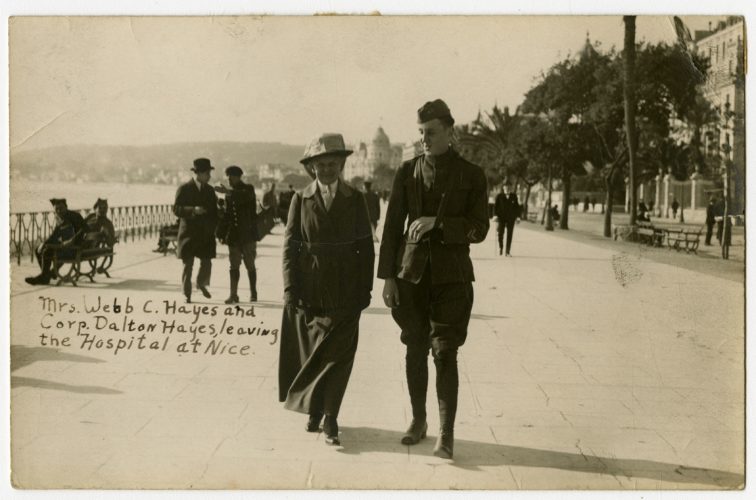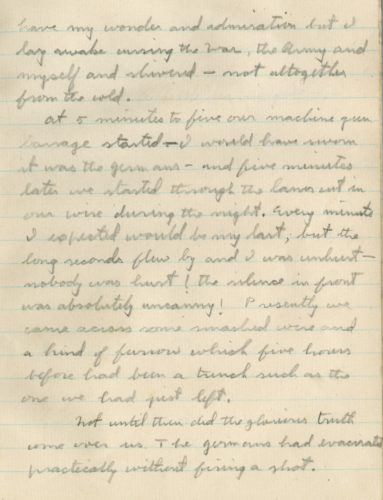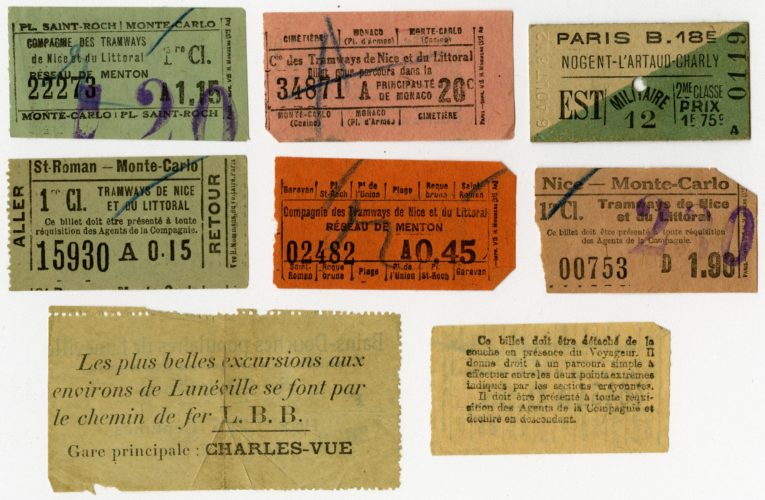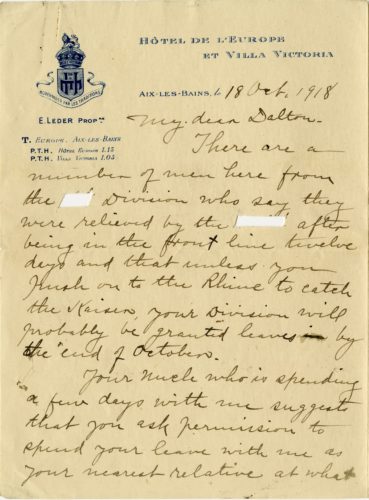Dalton Smith Hayes’ World War I Service


When the United States officially entered World War I, young men all over the country responded by enlisting in the armed forces. One of these men was Dalton Smith Hayes, grandson of President Rutherford B. Hayes, born at Spiegel Grove in Fremont, Ohio, on June 22, 1898, to Fanny Hayes and Harry Eaton Smith.
The United States Congress declared war on Germany on April 6, 1917, and later that same month, Dalton joined the Princeton Battalion as a freshman at Princeton University, training with the Princeton Officer Training Corps. On September 10, 1917, Hayes enlisted at Camp Mills on Long Island inCompany D, 165th Infantry Regiment, 42nd Rainbow Division of the American Expeditionary Forces (AEF).
After the United States joined the war, the federal government quickly formed committees dedicated to establishing training camps and mobilizing large numbers of troops. In an effort to quickly build up an army, the United States created the 42nd Rainbow Division, so-called after Major Douglas MacArthur said that the 42nd would “stretch over the whole country like a rainbow,” which pulled National Guard units from 26 states and the District of Columbia to form a new army unit. The 42nd Rainbow Division included the 4th Regiment from Ohio and the 69th Regiment from New York, which became the 165th Infantry in the 42nd Rainbow Division.

With the 42nd, Dalton fought on the Western Front in France, but returned home after sustaining serious injuries in October 1918. Hayes would return to the army during World War II as a captain, where he served in intelligence locating radio stations used by Germans to direct submarines. Between the wars and after World War II, Hayes worked for the Standard Oil Company until poor health forced him to retire in 1948.

Although heavy censorship prevented soldiers from disclosing specifics about battle, the movement of men, or locations when writing to loved ones back home (in this letter, Harlan W. Johnson writes about a German spy at his camp!), soldiers often wrote about their living conditions, training exercises, their general well-being, and the places they visit. The Dalton Smith Hayes Collection at the Rutherford B. Hayes Presidential Library & Museums contains written correspondence between Dalton and his family while serving overseas, his war-time diary, photographs, and drawings.
Collections at the Hayes Presidential Center also document the World War I service of U.S. Army Colonel Webb C. Hayes and his wife Mary Miller Hayes, as well as U.S. Navy Admiral Webb C. Hayes II, President Hayes’ son and grandson respectively.
The New Year will bring exciting new material to the World War I in Ohio Collection on Ohio Memory! Recent additions include a series of military training lantern slides, as well as the scrapbook and diary of Sergeant Ralph B. Evans of the Quartermaster Corps. Check back with us soon!
Thanks to Kristen Newby, project coordinator at the Ohio History Connection, for this week’s post!



Leave a Reply
You must be logged in to post a comment.